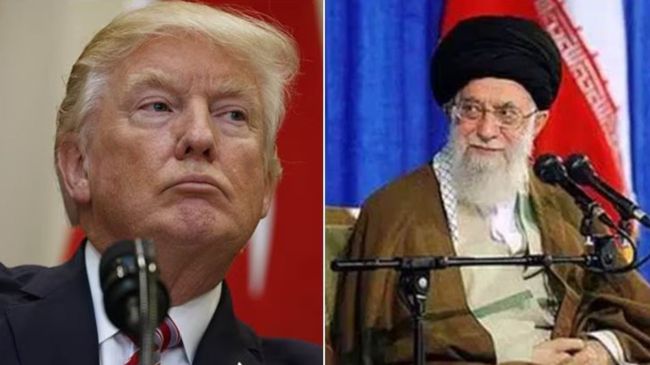Opinion US has begun preparing for a war with Iran. India needs to step in
Trump would like the war to be short and swift, focussing primarily on Iran’s nuclear installations and energy infrastructure. However, motives often change as wars go on
 From Washington’s perspective, its supremacy in West Asia rests on Israel’s security and dominance.
From Washington’s perspective, its supremacy in West Asia rests on Israel’s security and dominance. US President Donald Trump has threatened Iran with bombing and secondary sanctions if the latter fails to halt its nuclear weapons programme. His administration believes that Tehran has accumulated enough enriched uranium to develop a nuclear bomb within weeks. With nuclear weapons in its arsenal, Iran would become a permanent threat to Israel — and US interests — in the region. The existing security architecture, dominated by the US-Israel alliance, will crumble.
From Washington’s perspective, its supremacy in West Asia rests on Israel’s security and dominance. The only real threat to Israel’s dominance is Iran which is weak and vulnerable at the moment. It is teetering on the brink of a collapse with economic meltdown, protests and the gradual loss of proxies in the region. Contrast this with its influence just two years ago, when it appeared impenetrable with protective shields provided by Shia forces in Iraq, Bashar-al-Assad in Syria, Hezbollah in Lebanon and the Houthis in Yemen. That phase seems to be over now.
Israel’s operations weakening Hamas and Hezbollah, and the US bombing the Houthis have considerably altered the power dynamics in West Asia. Iran’s proxies have not been completely wiped out, but their ability to harm Israel is relatively limited. Its all-weather friend Russia, caught in conflict with Ukraine, is not in a position to support it. Owing to its ongoing ceasefire talks with Washington, Moscow will refrain from taking measures which will antagonise Trump. China will continue to sympathise with Iran but will not sacrifice its commercial interests with the West. It may supply weapons to Tehran but will not engage in a direct war against the US. Therefore, Iran will have to fight its own battle with limited support from outside.
From Tel Aviv’s perspective, on the other hand, there cannot be a more opportune moment. It does not have to mull over collateral damage and human rights violations and the US is standing firmly by its side.
The hawkish cabinet members of the Trump administration, such as Secretary Marco Rubio, Defence Secretary Pete Hegseth and National Security Adviser Mike Waltz, have openly advocated harsh measures against Iran. A war with Iran will strengthen Netanyahu’s domestic stature and mute his opponents. War is a more likely outcome than negotiations under the existing circumstances.
Tehran would like to avoid a war but is unwilling to concede to US demands because it would be viewed as a capitulation. National pride will take a hit. After all, it was the previous Trump administration that withdrew from the US-Iran nuclear deal in 2018. Further, it was during the first Trump administration that the US killed Islamic Revolutionary Guard Corps head Qasem Soleimani in Iraq in 2020.
The US has begun preparing for an eventual war. The US Air Force is believed to have deployed seven B-2 bombers to Diego Garcia, a joint US-UK military base in the Indian Ocean. Several aircraft carrier fleets were also moving towards the Indian Ocean. French President Immanuel Macron held a rare emergency cabinet meeting to discuss Iran’s nuclear programme amid mounting tensions between Washington and Tehran.
Trump would like the war to be short and swift, focussing primarily on Iran’s nuclear installations and energy infrastructure. However, motives often change as wars go on, and recent events have busted the myth of short wars. Iran has well-developed missile and drone systems capable of targeting Israel and US military bases in West Asia. The Iranian spokesperson has indicated that in the event of a war, ten US military bases and 50,000 American soldiers will become its target. Iran is bound to retaliate with its full force in collusion with its proxy forces nearby.
One wonders whether Trump’s war with Iran will achieve any of its objectives. It may succeed in its air strikes but will endanger US interests and destabilise the entire region. Ideally, the Trump administration would have sought to rework the 2015 nuclear deal in collaboration with the other members. His current unilateral policy of “deal or war” is hardly a deal in the real sense. It might well be the case that the US and Israel have given up hopes of negotiations and are working for a showdown.
The war will have unintended consequences for the region and the world. Iran might close the Strait of Hormuz in a war situation, a key route for global energy trade from the Persian Gulf. Energy and fertiliser prices will undoubtedly go up, affecting global manufacturing and trade. Global inflation would rise, impacting everyday life. For India, it would be disastrous because its energy supply from the Gulf would be impacted. New Delhi also has good ties with Iran, and its stakes are high in West Asia because of energy, commerce and the diaspora. The Chabahar Port and the proposed International North-South Transport Corridor will be impacted. It is in the interest of India to activate its diplomacy and convince the two parties to arrive at an outcome beneficial for them both, the region, and the rest of the world.
The writer teaches at the School of International Studies, Jawaharlal Nehru University, Delhi. Views are personal




